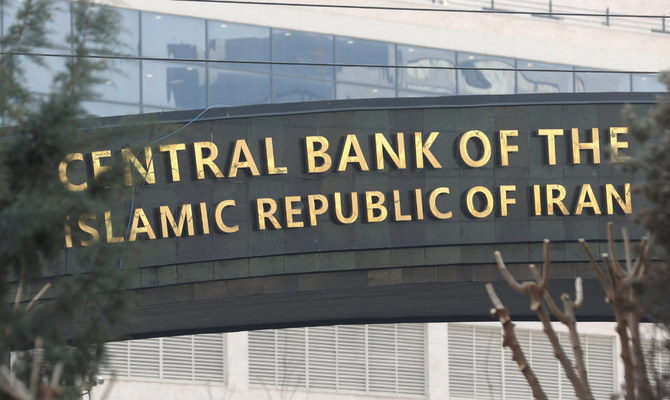
US Treasury Secretary Steven Mnuchin said the bank was Tehran"s last source of funds
Asked about the possibility of a military response on Iran, Trump said the United States was always prepared
JEDDAH: US President Donald Trump on Friday revealed the details of additional sanctions against Iran, which he described as the toughest ever imposed.
The Treasury Department decided to take action against Iran’s central bank after US officials concluded that Tehran was responsible for last weekend’s drone and missile attacks on Saudi oil facilities in Abqaiq and Khurais.
“We have just sanctioned the Iranian national bank,” Trump said during a press conference in the Oval Office. “These are the highest sanctions ever imposed on a country.”
When asked about the possibility of a military response, Trump said: “The easiest thing I could do (is) knock out 15 different major things in Iran. I could do it right here in front of you and that would be it. And then you would have a nice, big story to report.
“But I think the strong-person approach, and the thing that does show strength, would be showing a little bit of restraint. Much easier to do it the other way. It’s much easier. And Iran knows if they misbehave, they’re on borrowed time.”
Meanwhile, Chinese President Xi Jinping on Friday strongly condemned the attacks. During a telephone call to King Salman, he said the strikes were a “serious violation” of the Kingdom’s security and stability, and had affected on the global energy market.
According to SPA, Xi pledged China’s firm support for the Kingdom and highlighted the comprehensive strategic partnership between the two nations.
He said his country would back Saudi efforts to ensure its security and territorial integrity, and expressed the appreciation of China for the measures taken by the Kingdom to maintain the flow of oil exports in the days after the strikes.
King Salman said the “criminal” attacks represented a serious escalation and significant threat to the security and stability of the region and to the world’s oil supplies. He added that the Kingdom will take appropriate measures to protect itself after completing the investigation into the attacks.
Expert analysts said a number of options remain available to Washington in response to the rogue actions of the regime in Tehran.
“The first option, of course, is the military option, with punitive strikes on oil and military infrastructure,” said Dr. Theodore Karasik, a senior adviser at Gulf State Analytics in Washington. He added that there are other options covering the spectrum of military operations, but the capabilities of Iran must be taken into consideration.
“There is a requirement to understand how violent state actors use drone technology and spread it to terrorist groups and vice versa. This question is important in terms of US options because of the ubiquitous drone issue,” he said.
“The second option is to push for UN support against Iran — condemning Iran for the global significance of the asymmetric attack.”
The third option, Karasik said, would be the deployment of the International Maritime Security Construct, an international surveillance mission the US is assembling involving 55 ships in the waters off Iran.
Dr. Hamdan Al-Shehri, a Saudi political analyst and international-relations scholar in Riyadh, said the most direct response would be to target Iranian oil refineries and facilities in a tit-for-tat attack.
“Option 2 would be to hit Iranian Revolutionary Guard Corps installations and intelligence-gathering facilities inside Iran,” he said.
A third option would be to launch a cyber attack in an attempt to cripple Tehran’s command-and-control systems, according to Al-Shehri.
“This was done in the past when a computer worm called Stuxnet caused substantial damage to Iran’s nuclear program,” he said.
Harvard scholar and Iranian-affairs expert Majid Rafizadeh said that a combined approach by the US is the best option.
“A multi-dimensional policy is required,” he said, the first part of which would be “stepping up the ‘maximum pressure’ campaign” against Tehran.
Increasing economic sanctions has proven inadequate, however, so this would be accompanied by the formation of a coalition of regional and global states to maximize the economic and political pressure on Iran, he added.
Most importantly, he said, these two options must be accompanied by a military response proportionate to Iran’s actions against the Kingdom.












